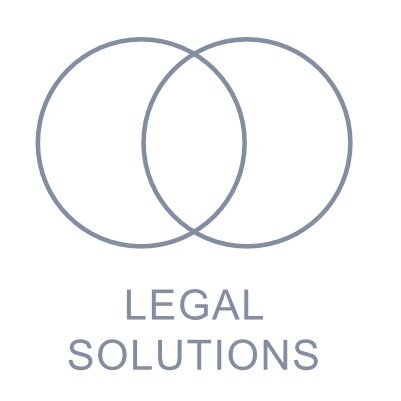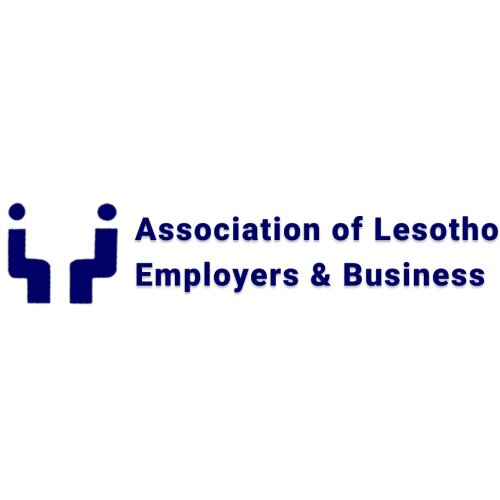Best Energy, Environment & ESG Lawyers in Lesotho
Share your needs with us, get contacted by law firms.
Free. Takes 2 min.
Or refine your search by selecting a city:
List of the best lawyers in Lesotho
About Energy, Environment & ESG Law in Lesotho
Energy, Environment, and ESG (Environmental, Social, and Governance) law in Lesotho is an evolving field that addresses the legal frameworks governing natural resources, environmental protection, sustainable development, and corporate responsibility. Lesotho's landscape is rich in natural resources, particularly water and renewable energy potential, making these legal areas especially important. The country is also subject to international treaties, local laws, and regulatory bodies that oversee the use and management of natural resources while protecting public interest and ensuring sustainable development.
Why You May Need a Lawyer
Legal assistance in Energy, Environment, and ESG matters is often necessary due to the complexity of regulations and the serious consequences of non-compliance. Here are some common situations where legal advice may be essential:
- Starting a business or project that involves natural resources, like water, minerals, or renewable energy
- Navigating environmental impact assessments and obtaining permits for development projects
- Handling disputes over land use, water rights, or environmental degradation
- Complying with international and national environmental and energy regulations
- Ensuring corporate governance policies meet new ESG standards
- Facing accusations of environmental violations or non-compliance with energy regulations
- Engaging with governmental bodies for licenses or concessions in the energy sector
Local Laws Overview
Lesotho's approach to Energy, Environment, and ESG is informed by a combination of domestic legislation, customary law, and international agreements to which Lesotho is a party. Key legal aspects include:
- Energy Laws: The Energy Act regulates generation, transmission, and distribution. Renewable energy is a focus, particularly hydropower. Licensing is mandatory for energy projects.
- Environmental Laws: The Environment Act lays out requirements for Environmental Impact Assessments (EIAs) and procedures for addressing pollution, waste management, and conservation of biodiversity.
- Water Law: Water, as a critical resource and major export, is regulated rigorously. The Water Act and related policies manage rights, usage, and conservation, particularly in connection with the Lesotho Highlands Water Project.
- ESG Regulations: Many aspects of ESG in Lesotho are addressed through sector-specific regulations, public procurement standards, and corporate governance codes. Companies are increasingly expected to align with best practices related to social responsibility and environmental sustainability.
- International Obligations: Lesotho is party to treaties such as the Paris Agreement on climate change and the Southern African Development Community protocols addressing environment and energy cooperation.
Frequently Asked Questions
What is an Environmental Impact Assessment (EIA), and when is it required?
An Environmental Impact Assessment is an analysis required for new projects that may affect the environment. In Lesotho, EIAs are mandatory before starting major construction, mining, energy, or development projects.
How does Lesotho regulate water use and rights?
Water is regulated through the Water Act, which requires users to obtain licenses for use, particularly for commercial or industrial purposes. Community-based customary rights may also be recognized in some instances.
Are renewable energy projects encouraged in Lesotho?
Yes, the government promotes renewable energy, especially hydropower, solar, and wind, through incentives and streamlined licensing processes for qualifying projects.
What happens if I fail to comply with environmental regulations?
Non-compliance can result in fines, mandatory remediation, suspension of activities, and even criminal liability in severe cases.
Are there specific ESG reporting or disclosure requirements for companies in Lesotho?
While there is no uniform national ESG reporting standard, companies involved in natural resources or large-scale projects often must comply with sector-specific transparency and reporting obligations.
Can community members challenge environmental permits or projects?
Yes, affected individuals or communities have the right to participate in consultation processes and can challenge decisions through administrative or judicial channels.
What bodies oversee environmental and energy compliance in Lesotho?
The Department of Environment, Lesotho Electricity Authority, and the Department of Water Affairs are key regulatory agencies. Some projects may also fall under the jurisdiction of local government authorities.
Do foreign investors have the same land and resource rights as locals?
Foreign investors may face additional requirements or restrictions, especially concerning land ownership. They are usually required to partner with local entities and obtain government approvals for resource-based projects.
How can businesses incorporate ESG into their operations in Lesotho?
Businesses are encouraged to adopt policies that address environmental protection, social development, and transparent governance. Seeking legal advice helps ensure alignment with current standards and regulations.
Is it possible to appeal decisions made by environmental regulators?
Yes, there are administrative and judicial processes available to challenge or appeal regulatory decisions, such as permit refusals or enforcement actions.
Additional Resources
For those seeking more information or assistance, consider reaching out to the following resources:
- Department of Environment - oversees environmental protection, EIA processes, and enforcement
- Lesotho Electricity Authority - manages energy regulation, licensing, and compliance
- Department of Water Affairs - responsible for water resource management and permits
- Lesotho Environmental Law Association - provides advocacy, education, and legal support
- Southern African Development Community (SADC) - offers guidance on regional energy and environmental policies
Next Steps
If you need legal assistance related to Energy, Environment, or ESG issues in Lesotho, start by documenting your situation clearly, including any correspondence and regulatory notices received. Identify the specific area of concern, such as permit applications, compliance challenges, or disputes. Contact a qualified lawyer or law firm that specializes in environmental and energy matters. Early consultation can help you understand your rights, navigate local regulations, and avoid costly mistakes. If unsure where to begin, seek referrals from professional bodies or the above-listed governmental departments.
Lawzana helps you find the best lawyers and law firms in Lesotho through a curated and pre-screened list of qualified legal professionals. Our platform offers rankings and detailed profiles of attorneys and law firms, allowing you to compare based on practice areas, including Energy, Environment & ESG, experience, and client feedback.
Each profile includes a description of the firm's areas of practice, client reviews, team members and partners, year of establishment, spoken languages, office locations, contact information, social media presence, and any published articles or resources. Most firms on our platform speak English and are experienced in both local and international legal matters.
Get a quote from top-rated law firms in Lesotho — quickly, securely, and without unnecessary hassle.
Disclaimer:
The information provided on this page is for general informational purposes only and does not constitute legal advice. While we strive to ensure the accuracy and relevance of the content, legal information may change over time, and interpretations of the law can vary. You should always consult with a qualified legal professional for advice specific to your situation.
We disclaim all liability for actions taken or not taken based on the content of this page. If you believe any information is incorrect or outdated, please contact us, and we will review and update it where appropriate.
Browse energy, environment & esg law firms by service in Lesotho
Lesotho Attorneys in related practice areas.
Browse energy, environment & esg law firms by city in Lesotho
Refine your search by selecting a city.












